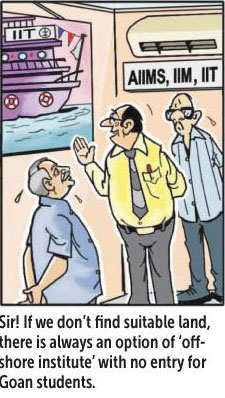Prime Minister Modi recently made a surprise visit to the newly constructed Parliament building which will have a seating capacity of 888 Members of Parliament in the Lower House (Lok Sabha). The issue arises ‘What was the hurry’?
According to the 2019 research paper India’s emerging crisis of representations by policy analyst Milan Vaishnav and Jaimie Histon of the Carnegie Endowment for International Peace, Bihar and Uttar Pradesh, the Hindi belt alone would gain as much as 21 seats in total while Tamil Nadu and Kerala put together will lose 16 seats if the delimitation is carried out according to the 2031 census.
However, the earliest schedule for delimitation is in 2026. The paper further said that if the strength of Lok Sabha after the exercise of delimitation, which is according to the projected population growth, the lower house would have a strength of around 850 MPs as against 543 today, which was designed after 1971 census.
To enable accurate representations, according to proportion- to-population principle, Uttar Pradesh is likely to have a whopping 143 seats in the lower House as against the present 80, while Kerala and Goa will still remain with 20 and 2 seats respectively in the nearly 850 seats.
Not only do the states in South India lose in terms of the number of seats, but the scheduled delimitation and reallocation of the seats may also end up giving more power to the northern States, ultimately BJP.
India at present has 766 districts of which, in a couple of years, there is likely to be 850 Members of Parliament which is more than the number of districts in the country in the House on taxpayer’s money to frame better laws on how to govern the country.
However, we were not surprised when the recent Parliament session was disrupted for five straight days owing to the BJP and the main opposition party, the Congress which locked their horns on respective demands and debates. Disruption of Parliament is a method that all opposition parties irrespective of party affiliation resort to over the years to raise their voice which is not only done in India but across the world.
In fact, in 2011, the then party’s leader of the Upper House of Parliament (Rajya Sabha), Arun Jaitely had mentioned “Parliamentary obstruction is not undemocratic”. The following year Sushma Swaraj, the then BJP’s member in the Lok Sabha also mentioned “not allowing Parliament to function is also a form of democracy”.
Recently, the ruckus in the Parliament was created when Congress leader Rahul Gandhi was disqualified as a Member of the House. This was coupled with the issue of Adani, CBI and ED raids and several other issues which led to the diversion from the main issue on which the Parliament needs work on and that is to discuss, deliberate and frame good progressive laws for the betterment of the common citizens of India. Very few of the present 543 members in the Lower House of the Parliament think about the taxpayer’s money being wasted when the serious discussions are being disrupted in the house.
All such trivial issues can also be raised outside the House in several platforms like media briefings, campaigns and protests which are allowed in a democratic country like ours. Smooth running of the House has generally been considered the ruling party's responsibility. The Treasury Bench picking up apparent non-issues to disrupt Parliamentary proceedings is uncommon globally. However, in its bid to outperform the opposition, the BJP has also set a new trend.
In the monsoon session last year, the BJP created a ruckus in the House over Congress leader AdhirRanjan Chowdhury addressing President Murmu as “Rashtrapatni” instead of “Rashtrapati”. Such trivial ‘debates’ demeans the parliamentary ethos.
With the delimitation in 2026, the number of MPs is going to increase by more than 300. The job of the Speaker of Lok Sabha is likely to get more difficult to control the House. However, since the ruling BJP is likely to get the most benefit out of this process, it only shows that numbers are more important than ethics and the comfort of citizens.
Better intellectual debates and deliberations resulting in better laws would help the citizens of India rather than the frivolous ones which are being witnessed in the House today. Henceforth, it is absolutely mandatory to check on the behaviour of the lawmakers and make them responsible for wasting taxpayers' money.
